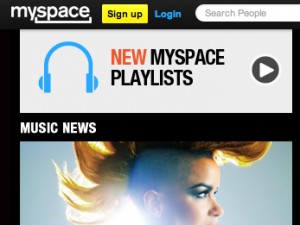By
Rob ScottJune 18, 2013
Social media platform LinkedIn has been making the transition from a utilitarian network designed for business professionals to something much more dynamic. Since October, LinkedIn has been offering original content authored by a select group of “Influencers,” leaders from a variety of fields that post their thoughts on life, careers and success. Traffic to all LinkedIn’s news products has increased eightfold since the Influencers were introduced. Continue reading LinkedIn Turns to Influencers to Enhance Publishing Efforts
Pandora is launching a new Facebook application called the Pandora Timeline App that integrates its mobile applications and website so that users can easily share their favorite music and discover new artists that are popular with their friends. The app has been updated with the new Facebook feature for iPhone and Android users. Users can customize which music they opt to share and can specify which categories (listening activity, likes and follows) to share. Continue reading Pandora Timeline App Hopes to Leverage Mobile and Social
Yahoo announced early this morning that it has agreed to pay $1.1 billion for Tumblr, the six-year-old blogging site that touts more than 100 million users, but little in the form of revenue. While Tumblr users have already expressed concerns that the site could end up cluttered with ads, Yahoo CEO Marissa Mayer promises “not to screw it up.” The deal marks the largest social acquisition in years, surpassing last year’s $1 billion purchase of Instagram by Facebook. Continue reading Yahoo Announces $1.1 Billion Acquisition Plan for Tumblr
Social giant Facebook is in discussions to acquire mobile navigation service Waze, according to people familiar with the matter. The purchase price has been reported by some outlets as high as $1 billion, which would rival the amount Facebook paid last year to purchase mobile photo-sharing service Instagram. The Waze acquisition would provide Facebook with the opportunity to efficiently deliver local ads and content to its 1.1 billion users. Continue reading Facebook in Talks to Purchase Mobile Navigation Startup
By
Rob ScottApril 3, 2013
Twitter released an updated version of its free Vine app last week that provides users with mobile-to-Web capabilities and allows them to embed Vine looping videos into social tools such as tweets and Facebook updates. Before the Version 1.0.7 update, users had to rely on third party tools like Vineit, which could only grab the videos via a desktop browser. Now the process is possible through the app and via mobile devices. Continue reading Vine App Update Includes Ability to Embed Looping Videos

